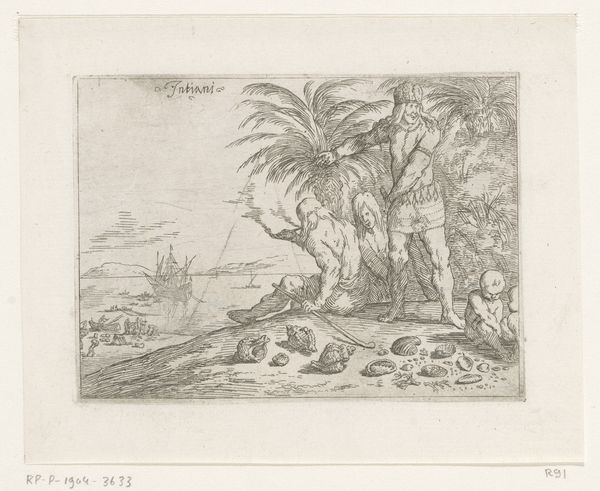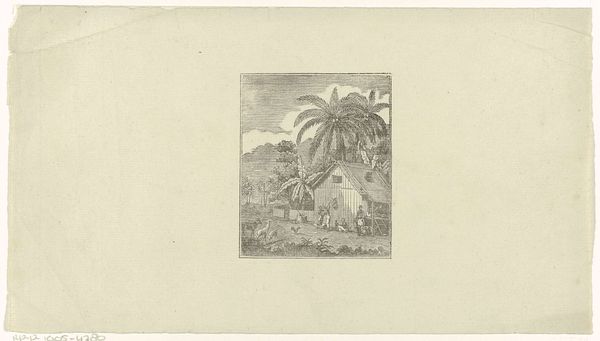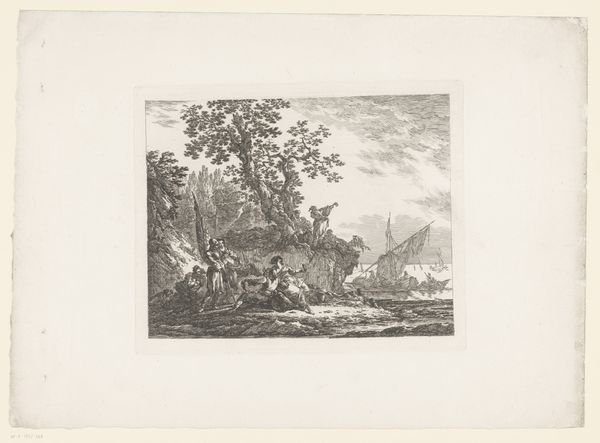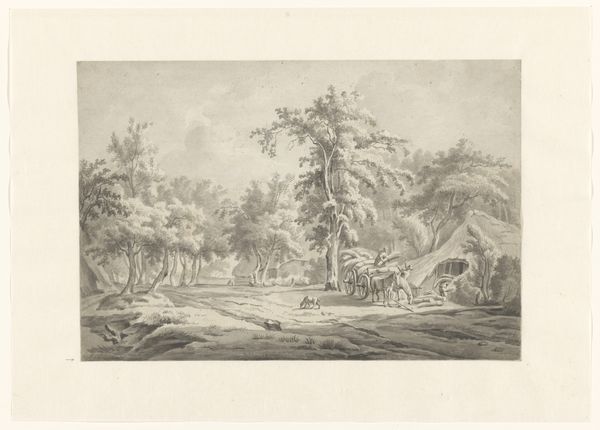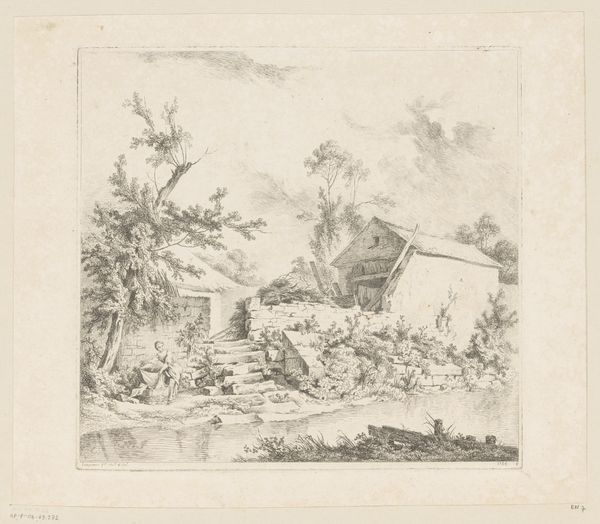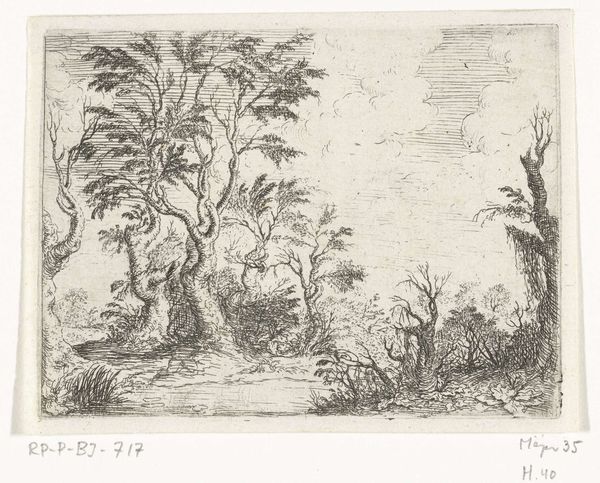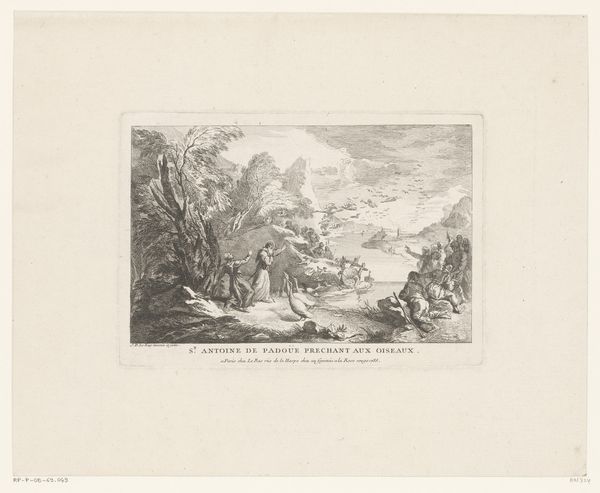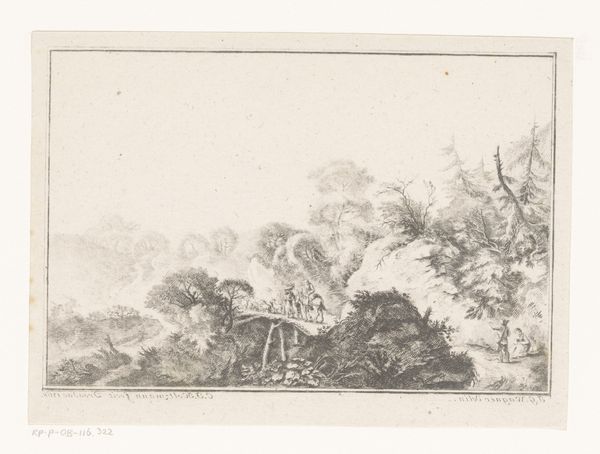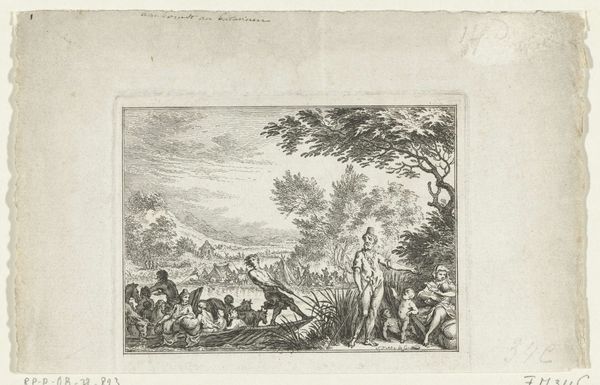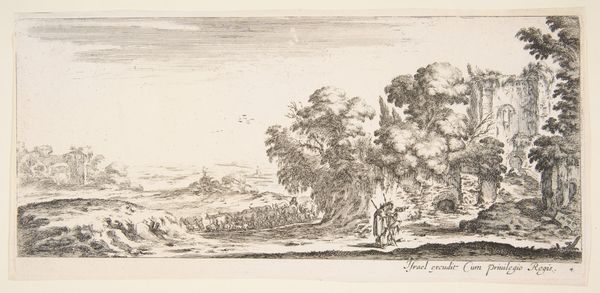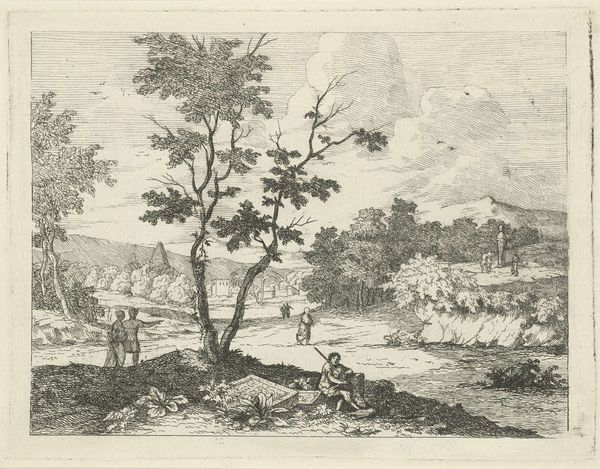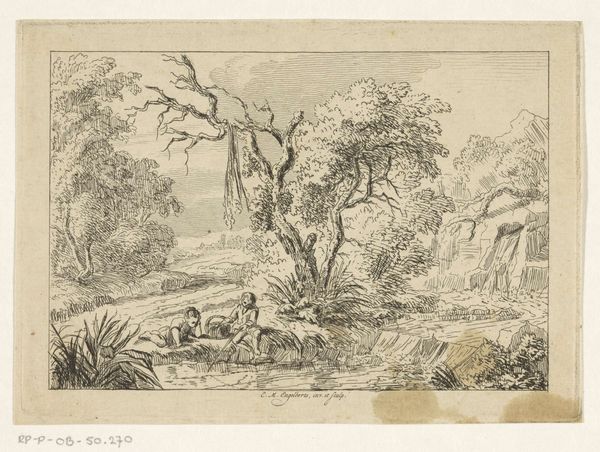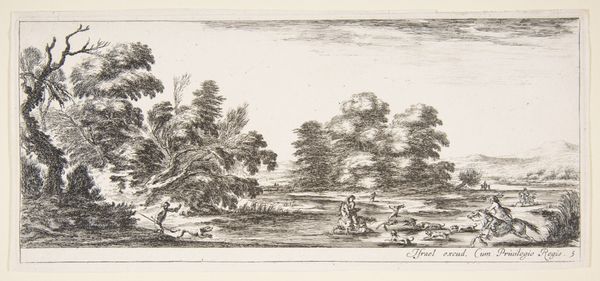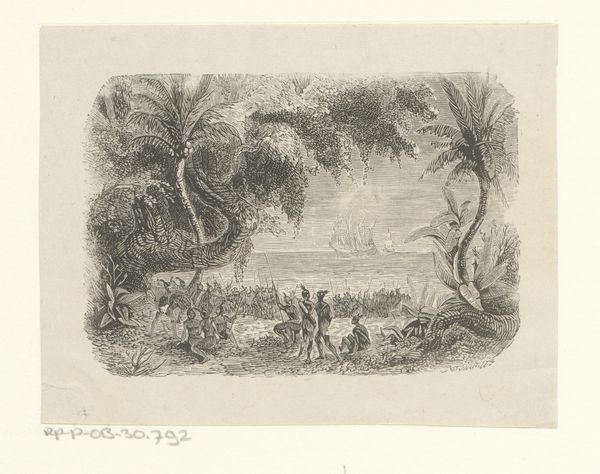
Dimensions: height 93 mm, width 105 mm
Copyright: Rijks Museum: Open Domain
Simon Fokke’s “Conquest of Ambon, 1606” was made sometime before 1784 using the technique of etching, a printmaking process that uses acid to cut into a metal plate. The linear quality of etching lends itself well to detailed images like this one, full of the details of ships, land, and figures. But what is emphasized, and what is left out? The ships are rendered precisely, down to the rigging, with a real sense of volume. The tropical setting, too, is lushly described. Yet the figures are given far less attention. Those on the ships are reduced to tiny marks, while the islanders are essentially generic, differentiated only by size and posture. This imbalance is telling. It reflects a worldview that values the implements and setting of colonial conquest more than the people affected. The labor that went into the production of these ships and the materials they carried - the very basis of the colonial enterprise - is romanticized, while the labor and lives of the colonized are effectively erased. Paying attention to such material and social choices allows us to reflect critically on the relationship between art, history, and power.
Comments
No comments
Be the first to comment and join the conversation on the ultimate creative platform.
